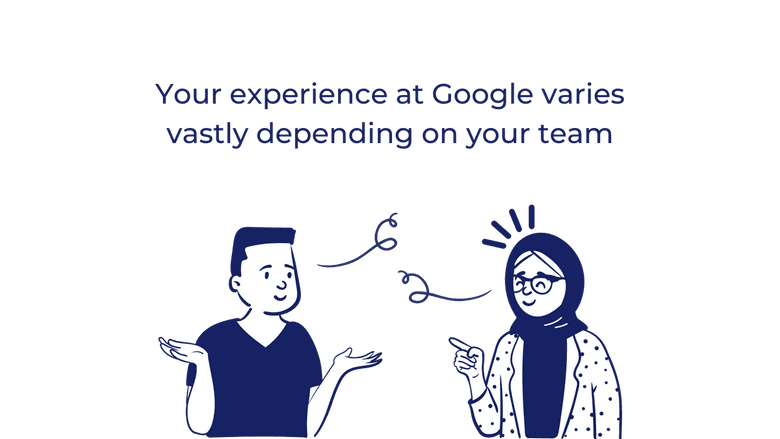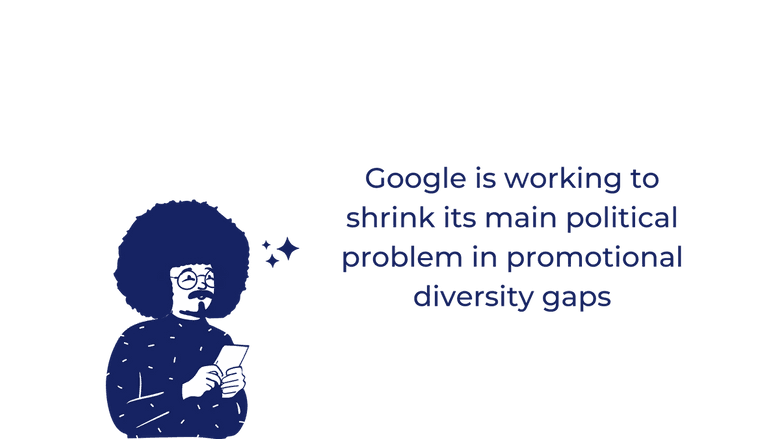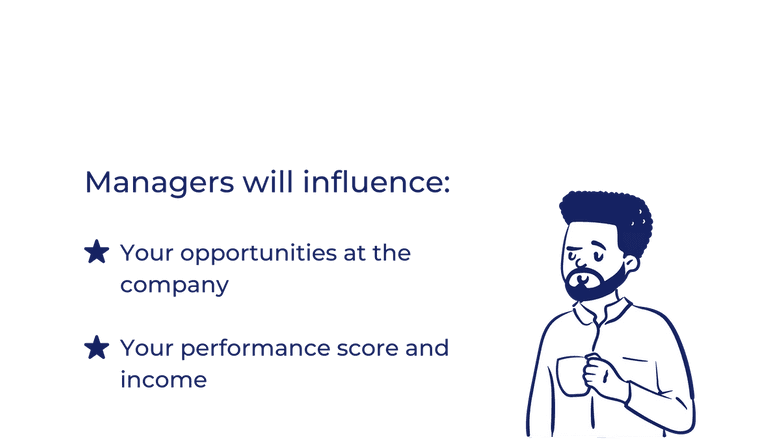Why Google's company culture is divisive
Some love it, others say it's horrible- who's right?
Google's company culture is divisive. On one hand, you have glowing reviews. On the other, the famed Wired article, which reads like a workplace horror novel.
What is the truth? We interviewed current and ex-Google employees in search of a balanced perspective about the work environment.
Your Team Defines Your Experience

The team you're on can really impact your experience, according to Googlers.
"Choosing a group at Google is really a science," says a senior engineering manager.
While some things are universally true about Google's culture, the team you're on has a heavy impact on your work-life balance in particular. A developer on the Cloud AI team said:
"Working 50-60 hours on my team is not out of the norm. I don't think this is true of all other teams and I wish I would have thought more about matching. I think the Google Cloud AI org is poisonous. I usually arrive at 10 in the morning, and many people are already working. I leave at 6:30, and many people are still working."
There are similar reports coming from the Google Assistant team. A junior product manager said the following about the workplace culture on the team:
"Everyday's work is to tinker with various internal frameworks. It is difficult for low-level engineers to produce enough impact in Google. Everyone does things slowly. I am also very disappointed with the company and do not see any opportunities for growth."
At the same time, a developer on a Backend/Infra team told us on his team turnover is very low (under 5%) and morale is high:
"It's very easy going, we tend to work less than 40 hours per week."
If you decide to accept an offer from Google, don't assume the corporate culture and the team culture are the same. Sure, everyone gets the same perks (like free food or nap pods), but not every team in the Googleplex is equally happy.
Workplace Politics Barely Exist

There are "barely any" workplace politics, according to Googlers.
While many people we spoke with said that workplace politics weren't a major issue, almost everyone had a complaint about the promotion process at Google. Seems like a big struggle in Mountain View is upwards mobility.
"I felt like it would be faster to change jobs to another company to level up versus go through the promotion process at Google," says one ex-Googler.
"I have been disappointed by the interval salary increases since I joined," says a current employee in New York.
However, one could argue that many tech giants face a similar problem. We've heard similar comments from employees at other companies like Microsoft or Apple.
Another snag in the promotion process: Google asks its people to nominate themselves for promotion. Former head of people operations, Lazlo Bock, had this to say in an interview about the process:
"Be sure to raise your hand. Years ago, we saw that women were nominating themselves at a lower rate than their male colleagues, but when they did nominate themselves, they were more successful." Now Google sends out "reminder emails to nudge women to nominate themselves. And we don't see the gap in promotion rates any more."
In a famed LinkedIn post Lazlo wrote after leaving Google, he advised those whose talent was often overlooked to move on.
👉 Read next: How leveling works at Google
Choose The Right Boss

Pick the right boss during the hiring process. Your boss matters as much as your team does. Some managers live and breathe the company's core values, while others do not.
You have control over who you work for during the hiring process. Several Googlers we spoke with described their boss as the sole reason they're at Google, without even mentioning the famed Silicon valley perks like the ping pong tables and free food.
"My manager has been mentoring me for a few months now and I see a clear promotion channel," says an engineer on the Search Team.
"The best advice I have for new applicants is- It's better to ask yourself who is in this group, and then ask how this group is," says a designer.
Your manager will have a huge impact on the opportunities that open for you at Google. If they are not politically mobile, you will get stuck too: stuck on promotions, stuck on moving to a new team, or working on a new product. This equals career death at tech companies.
Your boss will, of course, also rate your performance. Those ratings are closely related to your refreshers, which can be large. For example:
- 4's refresher for "Meets" is $70,000
- 5's refresher for "Meets" is $100,000
- 6's refresher for "Meets" is $160,000.
This is a major part of your income and, therefore, not something you want to leave to chance. So pick your boss as carefully as you negotiate your salary.
👉 Try next: Can you cut it at Google? Try answering 100 recent interview questions
The information provided herein is for general informational purposes only and is not intended to provide tax, legal, or investment advice and should not be construed as an offer to sell, a solicitation of an offer to buy, or a recommendation of any security by Candor, its employees and affiliates, or any third-party. Any expressions of opinion or assumptions are for illustrative purposes only and are subject to change without notice. Past performance is not a guarantee of future results and the opinions presented herein should not be viewed as an indicator of future performance. Investing in securities involves risk. Loss of principal is possible.
Third-party data has been obtained from sources we believe to be reliable; however, its accuracy, completeness, or reliability cannot be guaranteed. Candor does not receive compensation to promote or discuss any particular Company; however, Candor, its employees and affiliates, and/or its clients may hold positions in securities of the Companies discussed.
